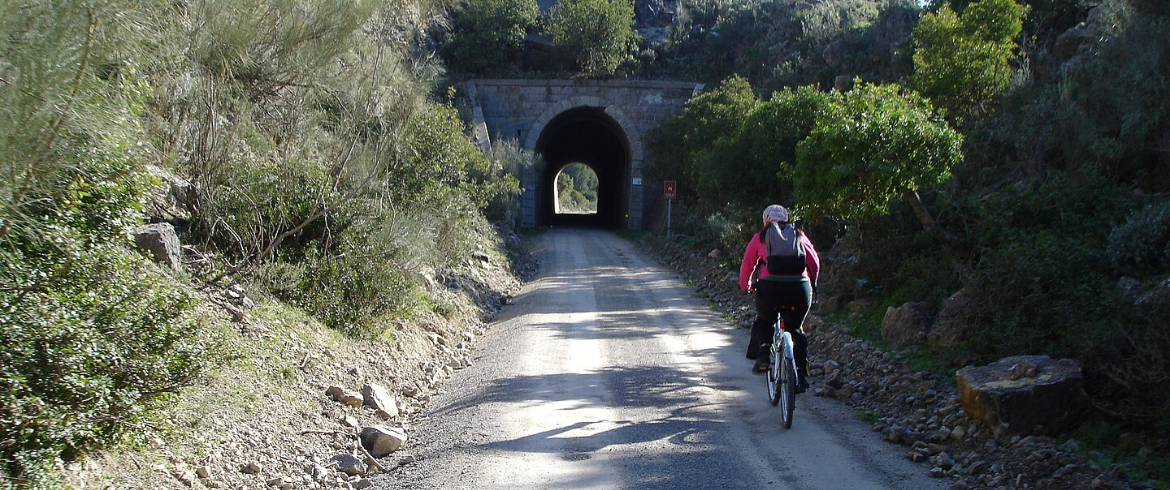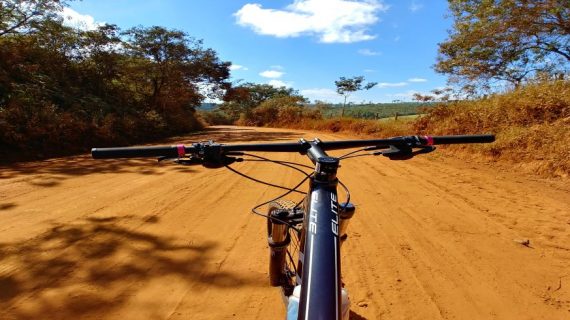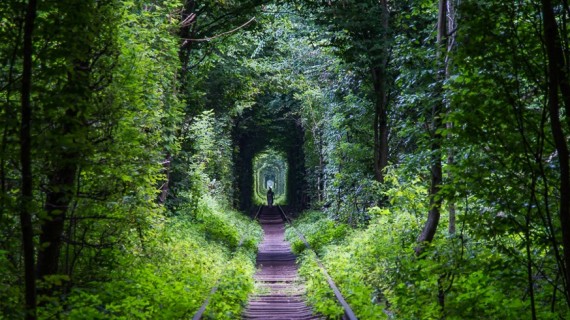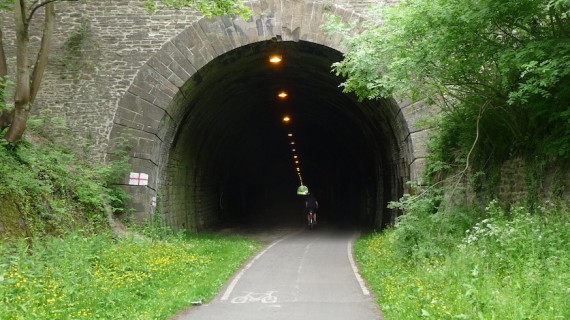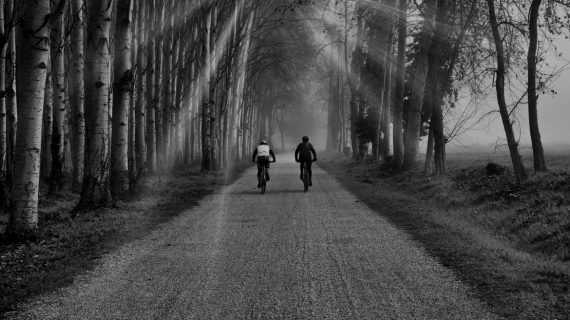Some routes are not just traveled—they are felt. The Via Verde de la Sierra, in southern Spain, is one of them: a cycling journey through old railway landscapes, dramatic gorges, and whitewashed villages steeped in history. A slow-paced ride between olive groves, tunnels, viaducts, and wild nature.
A route between two white villages
The greenway begins in Puerto Serrano, where a restored train station welcomes travelers with bike rental, basic services, and a small restaurant. From here, the path gently follows the course of the Guadalete River, flanked by riverside vegetation and rolling hills. Midway, at the Coripe station, you’ll find another rest stop, ideal for a break, a meal, or even an overnight stay.
The journey ends in Olvera, one of the most picturesque villages in the province of Cádiz. Its castle and baroque church sit atop a hill, offering a dramatic conclusion to the route. But as always, the best part isn’t the destination—it’s the journey itself.


The Zaframagón Rock and the flight of vultures
One of the most magical moments of the route is the passage by the Zaframagón Rock, a stunning limestone formation declared a Nature Reserve. It hosts one of the largest colonies of griffon vultures in Europe. Bring binoculars, stop for a moment, and look up—you’ll likely see these majestic birds soaring effortlessly in the thermal currents.
Nearby is the Zaframagón Observatory, set in a former train station, with informative panels and live cameras to observe the birds without disturbing their habitat.


Tunnels, viaducts, and surprises along the way
Along the route, you’ll pass through 30 tunnels—many of them lit—and cross 4 viaducts, such as the Navaluenga or Zaframagón bridges, offering panoramic views. This railway was designed in the early 20th century to connect Jerez and Almargen, but it was never used by trains. Today, repurposed, it stands as a symbol of sustainable transformation of heritage.


How to get there and what to know
You can start the route in either Puerto Serrano or Olvera, both of which offer parking areas and basic facilities. From Seville, the fastest option is by car (around 1 hour and 20 minutes to Puerto Serrano). From Cádiz, travel time to Olvera is similar. There’s no direct public transportation, though some rural accommodations offer pick-up services.
The route is mostly flat and well-marked, with a gentle incline when going from Puerto Serrano to Olvera. The surface is either compacted soil or well-maintained asphalt, suitable for mountain bikes, hybrids, or walkers.
Bike rental and services
Both starting stations offer bike rental, including electric options. Some rural accommodations also provide bikes for guests. You’ll also find rest areas, water fountains, and picnic spots—perfect for enjoying the ride at your own pace.

Map of the Via Verde de la Sierra
To plan your trip in detail, you can consult the official map of the Via Verde de la Sierra, which includes all points of interest, services, and route features.

What visitors are saying
“A beautiful experience, perfectly marked and full of stunning views. I recommend doing it in spring, when everything is green and vultures fly close to the Peñón.”
– Cristina G. (Google review)
“We did the route as a family from Puerto Serrano to Olvera and it was a delight. Tunnels, bridges, birdwatching stops… perfect for a different kind of getaway!”
– Luis and Marta (Wikiloc review)
A trail to reconnect
The Via Verde de la Sierra is not just a bike path—it’s a journey through the history and landscapes of southern Spain. It’s a chance to reconnect with the earth, with silence, and with a slower, deeper way of moving. And in today’s world, that’s worth more than ever.
